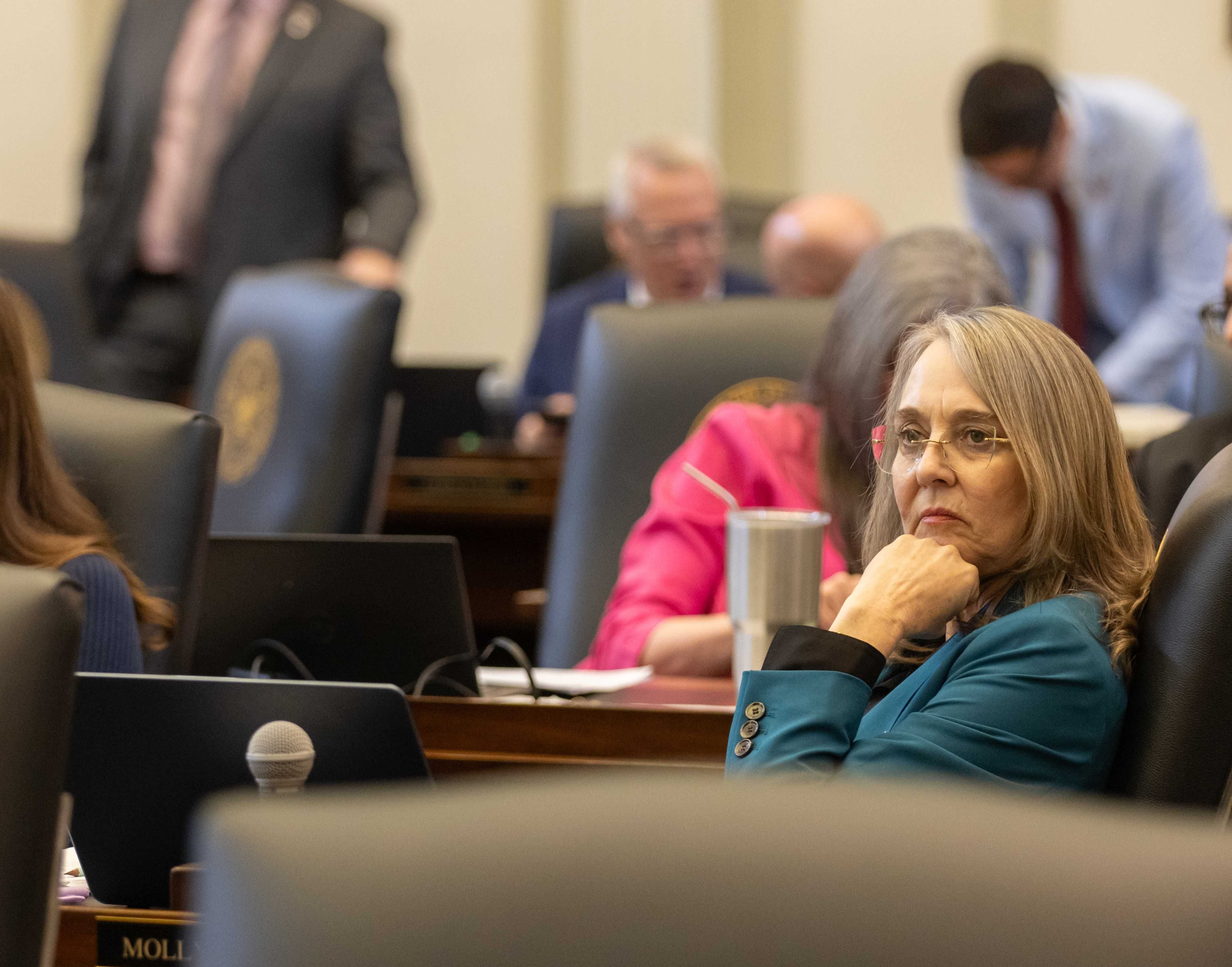Jenkins Rejects Legislative Pay Raise, Seeks Attorney General Opinion on "Closed-Door" Meeting, and Proposes Voter Approval for Freezing Legislative Pay

OKLAHOMA CITY — Rep. Molly Jenkins, R-Coyle, has sent a letter to Attorney General Gentner Drummond requesting a formal opinion on whether the Oklahoma Legislative Compensation Board's executive session violated Oklahoma’s Open Meeting Act.
“If the executive session was unlawful, the public deserves to know,” Jenkins said. “And if it was permitted under a loophole, then we need to fix that loophole immediately.”
Her request follows the recent decision by the board, which met in executive session before approving salary increases for state politicians, including legislators who are among the highest-paid part-time lawmakers in the nation.
State law allows boards to meet in executive session, which is a private discussion of salaries of their own employees, but Jenkins says legislators are not employees of the compensation board.
“I was heartbroken to hear that the Legislative Compensation Board entered an executive session, which I do not believe is authorized by Oklahoma law, before voting to award these massive raises,” Jenkins said. “This is not transparency, and this is not the Oklahoma way.”
According to Jenkins, the circumstances surrounding the meeting “do not pass the smell test.” She noted that the board had twice declined to raise legislative salaries in previous meetings, and then, after members were replaced, the board met behind closed doors and abruptly “changed its mind.”
“At a time when Oklahoma taxpayers are struggling under soaring insurance premiums, rising property taxes and higher utility rates, the last thing they should be forced to do is pay more for their politicians, especially under such regrettable and suspicious circumstances,” Jenkins said.
Depending on the attorney general’s findings, Jenkins may introduce legislation to ensure a situation like this “can never happen again" in the form of a constitutional amendment.
For the 2026 Legislative Session, Jenkins says the amendment she is working on could abolish the Legislative Compensation Board altogether and could freeze legislative salaries at their current level, before the newly approved raises, unless voters themselves approve future increases.
“For too long, this board has ensured that Oklahoma’s part-time Legislature remains the highest paid in the region, and one of the highest compensated part-time legislatures in the nation, even as our state trails far behind in so many other metrics,” Jenkins said. “Only the voters should have the final say on legislative compensation, not an unelected board of bureaucrats who never have to face the vote of the people.”
The deadline to file bills and joint resolutions is Jan. 15, 2026, and the Second Regular Session of the 60th Legislature is set to convene on Feb. 2, 2026. Jenkins has indicated she will also use the upcoming session to formally propose blocking the pay raises for other statewide officeholders, including the governor, attorney general and state superintendent, keeping their salaries at current levels.
“Public service should never be about the money; it should be about sacrifice,” she said. “You can never pay a true public servant enough. But you can absolutely overpay a worthless politician.”
If the legislative pay raises do take effect, Jenkins announced she will reject the increase and donate the additional money to a House District 33 crisis pregnancy clinic.
“These clinics are on the front lines every single day, saving lives and restoring hope to mothers and their babies in their greatest time of need,” Jenkins said. “If this pay raise goes through, the people of House District 33 will see every dollar of it put toward something that truly matters.”
